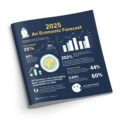Trump hitting Biden with a golf ball. Taylor Swift pornography. Celebrities endorsing products. Russia getting involved in producing fake videos portraying Kamala in unfavorable light. Trump, Musk, Swift, Biden, and many more were just some of the targets for deepfakes in 2024. There were celebrity warnings. There were government warnings. Still, people fall prey to scams, based on fake information, constantly, despite warnings from the FBI and many other sources. Americans lost $12.5 billion to scams in 2023 alone. From the race for elusive love, desire to get rich quickly, or just finding reasons to disapprove of someone, like seeing a politician you dislike do the unthinkable, people oftentimes choose to live in la-la land, instead of being grounded by reality. In 2023, despite the inflation and a struggling job market, spending on home entertainment in the United States reached a record $42.97 billion, sports betting got legalized, illegal drug trade increased, money spent on alcohol went up to $37.7 billion, and multibillion-dollar jackpots became a commonplace occurrence.
With increasingly difficult external circumstances, like higher mortgage rates; high housing prices; enormous cost associated with getting good education, leading to borderline unmanageable student debt; and now seemingly inevitable tariffs against most of the world, resulting in even higher consumer prices, as the inflation is more or less finally under control, believing in a non-existent dream seems to align well with the concept of dying of the American dream as a whole.
Those are the macro tendencies, but how is fake, or almost fake information find its way into our lives at every level, including corporate growth plans? In 2023 advertising and marketing media spending grew to $515.1 billion in the US alone. How much of that was dedicated to seemingly conflicting, if not outright fake, information? Based on advertisements alone, can Coke and Pepsi both have the ‘best-tasting soda’? Is Chase or Citi the best bank for consumers? Does AT&T or Verizon offer the most reliable cell phone service? Is Spectrum or FIOS the best route to the fastest internet? According to billions spent on marketing these, and many other options, it’s a matter of choice, and rarely fact, when it comes to the best in anything, whether it’s the best New York bagel or the best steakhouse in Dallas. In other words, people are confused and anything but certain about their choices. Believing in a Nigerian Prince or a new crypto opportunity seems no less logical, than believing that a new President will solve all of your problems.
How about the day-to-day illusions people encounter? The entire country, including prominent US politicians, was panicking about Chinese or Iranian drones flying all over New Jersey, with many renowned figures demanding the government shoots them down. An investigation revealed, that those were all legally owned drones, but the odds of this discovery preventing the next ‘fake encounter’ did not decrease. Millions still believe that the 2020 election was rigged. Countless people believe that 9/11 was staged, just as the Moon landing. To avoid permanent suspension, after acknowledging spreading conspiracy theories on things, like flat earth and origins of Judaism, Kyrie Irving took the admission back some time later, while many of his fans still believe it.
Regardless, US Citizens are consumers, first and foremost. Even when overpaying for goods or services, or getting less than ‘the best’ in its class item, short of the lemon law, people tend to just make peace with the imperfections, and perhaps complain about it on social media. While the absolute majority of Americans is concerned with privacy, there is one power stronger, than fear of scammers. It is the other fear of losing, known as the power of FOMO, the desire to get the newest shiniest most improved item. Despite the almost surreal losses to scammers, Americans spend endless billions on cybersecurity, both on private businesses side and government spending, while often disregarding even basic safety checks. Services, like LifeLock, charge you to monitor your private data. Credit card companies text, email, and call you, when you suddenly fill up your tank far from home, just to make sure it’s really you. VPNs offer another layer of protection. Regardless of those, and many other preventative services, consumers are permanently chasing the greatest trends and deals, from a desire to obtain a new version of a cell phone, even with minor improvements, to finding a really cute pair of crocs on a less popular e-commerce site, while often neglecting basic safety checks, like complex passwords and two-step verifications. Can people be blamed thou? ‘Brain rot’, or an overconsumption of less than challenging data, was named Oxford word of the year in 2024. Sources of such data have been carefully crafted by social media, focusing on trends, like Hawk Tuah; political campaigns, claiming that illegal immigrants are eating local pets; and parading Luigi Mangione for the cameras, as if he was Pablo Escobar reborn.
Even in business operations, scammers endlessly explore common insecurities. As the job market greatly cooled down, finding a job, especially in certain sectors, has become overly challenging. Endless resume sending to unapproved jobs, or positions with hundreds of other applicants, can be overly frustrating, but when the trend continues for 6+ months, and bills can no longer be paid, dreams often begin to replace reality. Who hasn’t received a text message recently ‘confirming’ that you are truly interested in a job? On the other end, just about every recruiter and HR rep got a few amazing resumes of candidates, who only exist on paper. Long gone are the days, when consulting companies would apply with their unavailable candidates, just to bait and switch talent, after getting a client interested. These days, Korean hackers are getting hired by US firms, as local remote talent, defrauding those firms of millions of dollars. At the same time, the number of posted jobs without approval has risen exponentially, at times feeling, like that’s all that is posted out there. The formula seems simple: a company wants to hire someone, but its Board of Directors or CEO won’t allow spending money on hiring. At the same time, the same BOD or CEO puts a lot of pressure on managers to deliver results without the necessary help. The hope is that finding a true ‘unicorn’ out there will convince the company to budge just for that special someone to get the essential projects completed. The reality, far too often, ends up in endless postings, ongoing screenings, at times every team member loving the person they find… just not to get it approved in the end, with time wasted and dreams squashed. Factors influencing these decisions may be solid, but they matter little, after spending endless days in a fruitless job search. This approach may temporarily boost morale, but in the long term, it creates a culture of distrust, no different than deepfakes.
Take it one step further and look at customer service. Long gone are the ‘Corporate accounts, Nina speaking’ intros, when you call a company. Nowadays, you usually have to deal with a bot to address just about any situation, as a client. Booking a flight or a ride? That’s easy. Something went wrong and you need personalized attention? Good luck with that, and even switching to a competitor won’t help, as everyone operates more or less the same way. As far back as 2008, Andrew Cuomo sued Dell for misleading warranty promises, instead leaving customers waiting on hold endlessly. Now, nobody will even consider such an undertaking, as many companies no longer even have customer service to help people, using prerecorded Q&As to address everything. When was the last time you spoke to Uber about a ride issue, or even attempted to look for their phone number to reach someone? None of the tools used are seemingly fake, except customer service itself.
Is Luigi Mangione a villain, or is the US healthcare the real monster, and every HMO’s CEO just gets rich off of others’ deaths? Is Sebastian Zapeta a monster, or is the government’s lack of interest in addressing the US mental care to blame? Perhaps, NYPD and MTA simply mismanage the country’s most complex public transportation system, failing to offer even basic safety on New York City’s trains? Maybe, our incoming President is to blame, by faming the flames of ‘fake news’, or perhaps over-commercialization of news sources is to blame for constant sensationalism replacing actual news? The odds are, as in most situations, there is no one simple answer to the rise of so much fake… everything. All one can do is learn to navigate the still uncharted waters of making sense of all information out there. That goal is only going to get more complicated with the rise of Generative AI with its ability to mimic anybody’s voice, looks, or even a signature on a contract.



